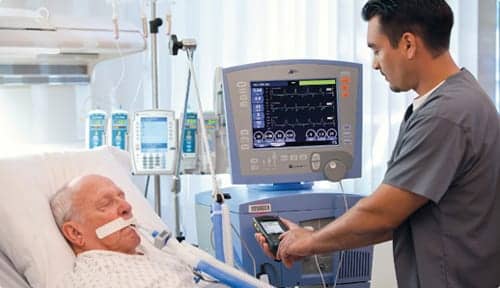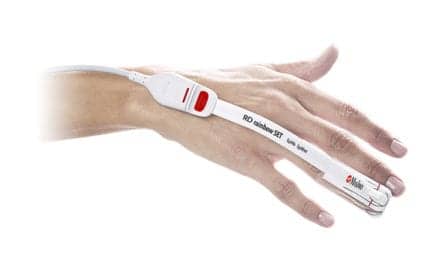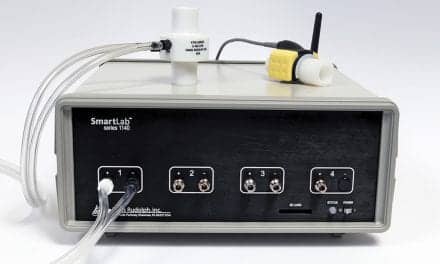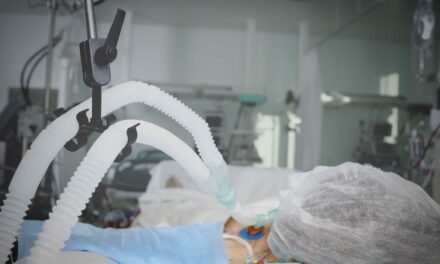CareFusion has launched a new feature on its CareFusion Respiratory Knowledge Portal to help clinicians improve patient care for ventilated patients, according to a company news release.
Using sedatives in critically ill patients has long presented a challenge; while it helps critically ill patients improve tolerance associated with invasive interventions like mechanical ventilation, it is also associated with longer time periods of mechanical ventilation, increased ICU lengths of stay and increased brain dysfunction.
The new Sedation Analytics application combines data from CareFusion mechanical ventilators and the company’s Alaris System infusion pumps to identify variability from the ICU sedation protocol at the hospital.
“The Respiratory Knowledge Portal has enabled us to measure the specific causes of delays in ventilator weaning and to act on that information,” said Harold Oglesby, manager of respiratory therapy and sleep disorders medicine at St. Joseph’s/Candler in Savannah, Ga, the first to adopt the new application. “By using these analytics we have achieved a significant reduction in ventilator length-of-stay, and we have been able to sustain that improvement.”
The Sedation Analytics application can also measure compliance with the hospital’s protocols for sedation vacations and spontaneous breathing trials, and can detect increases in sedation over a specified limit.
On average in the United States, a ventilated patient in an ICU bed for one day costs hospitals $2,296. After the fourth day, the average daily cost of care for the ventilated patient goes up to $3,917.
In a typical 400-bed hospital with 40 critical care ventilators, these daily costs can add up to more than $18 million per year. A 10% reduction in ventilator time for 15% of the most difficult-to-wean patients could result in an estimated $700,000 in savings per year with significant potential for additional savings in the remaining 85% of patients.
The CareFusion Respiratory Knowledge Portal helps hospitals to measure clinical and process variability in mechanical ventilation by providing actionable information to help hospitals improve patient care. In addition to the new Sedation Analytics application, reporting capabilities include ventilator weaning analytics, lung protective strategies analytics, alarm policy compliance analytics and ventilator-associated event surveillance.










